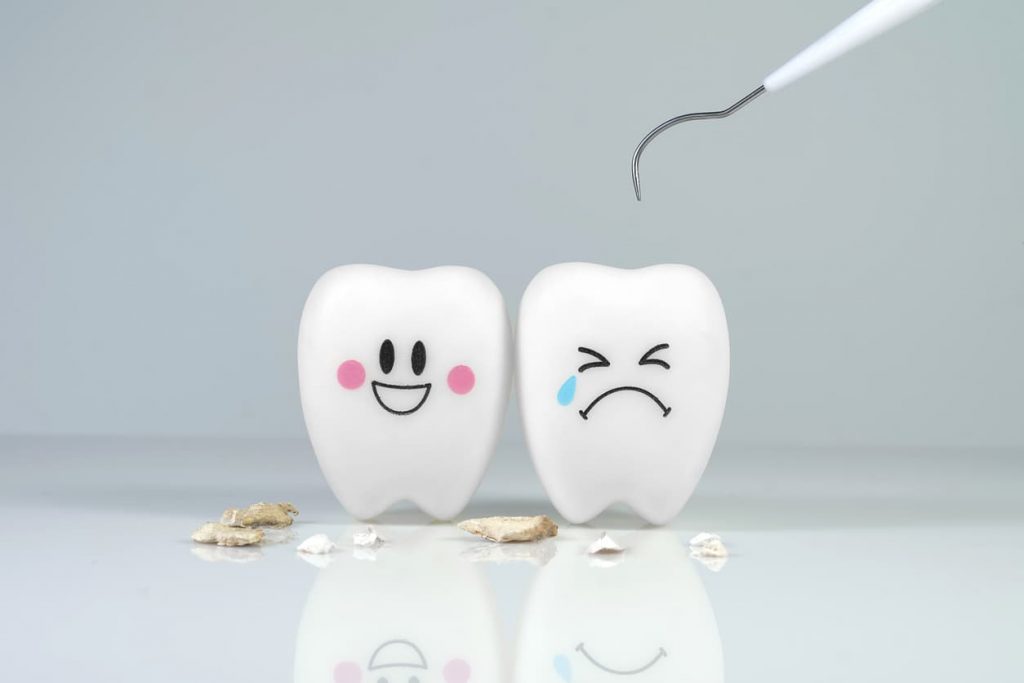
Here’s what you can expect during and after the treatment.
Cavity Filling: During the Procedure
Before starting, your dentist takes steps to minimize the pain you feel during the treatment itself. For example, they will use a local anesthetic to numb your gums and parts of your mouth. A local anesthetic only numbs the area being treated, which means you’ll still be awake during the procedure and able to interact with your dentist. Lidocaine is a commonly used anesthetic during dental work.
Administering the anesthetic is a three-part process. Your dentist will gently dry out the inside of your mouth with a piece of cotton or stream of air. They will then dab a gel on the injection site. The gel numbs the gum tissue, reducing the discomfort you may feel when the dentist begins the injection. Still, you might feel a bit of a stinging sensation. Interestingly enough, that sting isn’t from the needle. Rather, it’s a sensation created by the anesthetic as it works its magic to numb your gums and mouth.
Once the treatment area is completely numb, you won’t feel a thing as the dentist works.
Cavity Filling: After the Procedure
As the anesthesia wears off after your dentist has finished, you might feel some tingling in your mouth. Some people also have sensitivity in their teeth after the filling. For the most part, the sensitivity should fade after a few days. Your dentist might give you pain relievers to help with any soreness right after a cavity treatment. In these cases, try to take it easy and avoid putting too much force or pressure on the treated tooth.
If the pain or sensitivity doesn’t fade away after more than a week, it could be that the filling may need to be checked to make sure it isn’t too high and your bite (occlusion) is correct.
Cavity Filling: When to Call Your Dentist
Getting a filling should improve the health and comfort of your mouth, not make them worse. Do cavity fillings hurt? They shouldn’t, although you can expect some tenderness and soreness during the first few days after you get a tooth filled. It’s a good idea to call your dentist if that discomfort persists for more than a week. Your dentist can adjust the filling so that it’s a better fit.
If you were totally fine right after treatment, but start to experience pain or discomfort weeks, months, or even years later, it’s also a good idea to check in with your dentist. Fillings don’t last forever, and some filling materials have shorter lifespans than others. Your dentist can check out your teeth and let you know for sure.
To avoid fillings in the future, make sure you brush your teeth twice daily using a fluoride toothpaste and floss once a day. As well be sure to keep your regular dental check-ups and cleanings.
